- Folio No. 9
- About
- Feral Parrot : The Blog
- INTERVIEWS
- SUBMISSIONS
-
ISSUE ARCHIVE
- PRINT Chapbook No.6 Healing Arts
- Online Issue No.9
- Online Issue No.1 Fall 2016
- Online Issue No.2 Spring 2017
- ONLINE Issue No.3 Fall 2017
- PRINT Vol 72 No 2 Fall 2017
- PRINT Vol 73 No.1 Fall 2018
- ONLINE Issue No. 4 Fall 2018
- Online Issue No.5 Summer 2018
- FOLIO No.1 Fall 2018 VOTE
- ONLINE Issue No.6 Fall 2018 Fall Spirituality
- FOLIO 2 Fall 2019 Celebrating Dia De Los Muertos
- FOLIO No.3 -- Moon Moon Spring 2019
- FOLIO No.4 Celebrating New PCC Writers
- FOLIO No.5 City of Redemption
- FOLIO No.6 Spring 2020
- FOLIO No. 7 - Winter 2021 Into the Forest
- 2022 Handley Awards
- Inscape Alumni Board
- PRINT Chapbook No. 7 Healing Arts
- Blog
- Untitled
Written by Noah KimA literary piece that evolves alongside its reader invites to be revisited, and revisited, and revisited. The personal, yet broadly relatable thematic elements provides the college audience with a flux of newfound interpretations with each reread. The simple, straightforward story line of the poem "Con Gracia" by Brenda Estrada from the Mental Health Issue (Volume 73 No.2) is an inviting read with its effortless flow off the tongue and simplistic story line; however, poetry is often thought to become what the reader is willing to make it and "Con Gracia" is no exception.
0 Comments
Written by Brianna PayanThe day started off early in our creative writing class. I walked into the class expecting to see the chairs facing the direction of the board, but they were now rearranged into a counseling circle. We waited in our seats patiently for PCC's Writer-In-Residence and began to discuss amongst ourselves what she would be like:
“I heard she was super bubbly even though her book is super dark.” “What if she’s boring and not talkative?” Written by Maritza Oquendo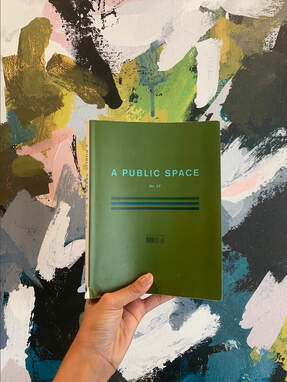 Photo by Maritza Oquendo Photo by Maritza Oquendo The Literary Magazine, A Public Space, was founded in 2005 by Brigid Hughes, who was the former executive editor of the Paris Review. It is a non profit magazine that is published quarterly online and in print. Upon the release of its very first issue in 2005, Hughes stated that the journal’s mission statement was “ A literary forum for the stories behind the news, a fragment of an overheard conversation, a peek at the novel the person next to you on the subway is reading, the life you invent for the man in front of you at the supermarket checkout line. Ideas and stories about the things that confront us, amuse us, confound us, intrigue us.” The magazine is one that has done its due diligence to stand by their mission statement in every creative and administrative decision they’ve made. They go out of their way to ensure that they are properly representing the different cultures and art that we come in contact with in our daily lives. They provide a platform for the culture and art that lives in all of us to be outwardly expressed in a variety of beautifully eloquent ways. Written by Catherine HsuI chose to write about "{r i'lernin}” by Esther Liew, a poem in the "Stories + Voices Zine" Inscape Chapbook Series No. 4 for the Summer 2019 issue. This summer's issue overall highlights on inner voice of the writer expressing their own experiences. She talks to her audience through the poem, especially when she asks the question, "Do you believe in love?". She uses When I first read Liew's poem, her title caught my eye due to its spelling and use of the word "relearning". I thought about the way the "i" was spaced out from the rest of the word and how it represented herself as first person. Therefore this gave it a sense of self importance and somehow by the title itself, I felt this poem was going to be about self-care or self-love. Upon reading the poem at first glance, I was under the notion that her idea of love was found through oneself rather than relying upon others or possibly a materialistic view. She also was articulating her voice while also interacting with the audience by asking, "Do you believe in love through healing". I kept getting this feeling that she was trying to send out a message to people who has gone through their own sense of pain. In a way, the message is like a type of reassurance, that in time, things heal and so will they. I feel the main reason this poem was accepted was purely for how relatable it is to the general audience. It was through the pain of another person and the healing of oneself that connects so well to the audience. Surely easier to whisper "a merry heart does good like a medicine," The way Liew describes self-healing through the metaphor of washing the heart "as in to wash and disinfect the wind, get rid of all dirt or debris from your heart" describes how important it is to recognize that when we are mentally in pain, we should treat out emotions like our physical wounds. It reminds us that we are only human and some days we can't just simply carry on with our lives in a daily expense. We need a day off for ourselves and to find our purpose or center again. We just take care of it like "a merry heart does good like medicine." In addition, healing should not have a time limit or minimum, nor a plan to follow upon. Sometimes the idea of self-healing comes naturally on unexpected days in need. The main point is to accept that you are in need of healing and to take the steps in quality to get better rather than how fast or in what quantity. In many ways, it reminds me of how I too remind myself that everything I do never matters in quantity but always quality and how well I did it. During hard times, I would step back and stop what I'm doing to see if it is really worth all the expense of my efforts. Helping others seem to take part in Liew's main idea as she closes her poem with "I promise to keep reminding you from the first day of sunrise until it decides to commit suicide." This specific quote really touches more so on people who are struggling. When she says, "but I won't let your broken spirit dry my bones. I promise to stay even after all the "leave me alone's".", it is directed to those who would be more than willing to go beyond what most people could expense on for their patience. It describes those helping hands who reach farther than others, never letting go no matter how hard times get. In a logical perspective, this may seem impossible for a sunrise to never rise or to "commit suicide," but as a figure of speech, it is translated as a promise to whom it concerns. The promise that they would never be left alone or abandoned and would be reminded so whenever necessary. I feel like Inscape really wanted a piece that held some kind of motivational quote. Through careful analyzations, I believe this issue was meant to focus on self-voice or inner voice. I feel that it touches base with the writer themselves as they can write more personally but at the same time directed toward a general audience. Inscape seem to want the audience to be related towards the writers deepest emotions and experiences. If you would like to read further about similar works like this, you may click here. Catherine Hsu is an English major hoping to find a successful career in the editor field. Through taking PCC's Inscape magazine course will she hope to gain some knowledge and experience in this.
|
IMPORTANT NOTE:
PCC Inscape Magazine, housed at Pasadena City College, is following Coronavirus protocols. At this time our staff continues to read submissions and publish web content. Note:
Blog Posts reflect the opinions of the writer and not the opinions of Pasadena City College or Inscape Magazine Editorial Staff Members. Archives
December 2023
Categories
All
|

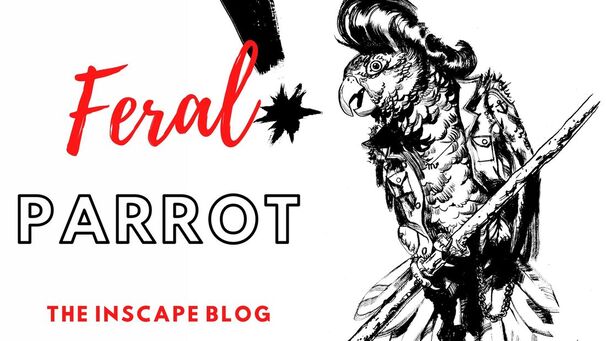

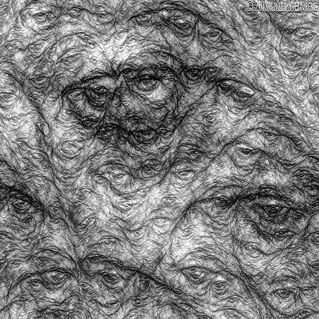
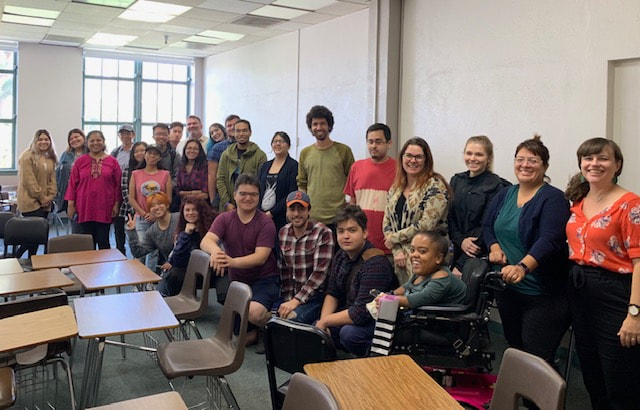
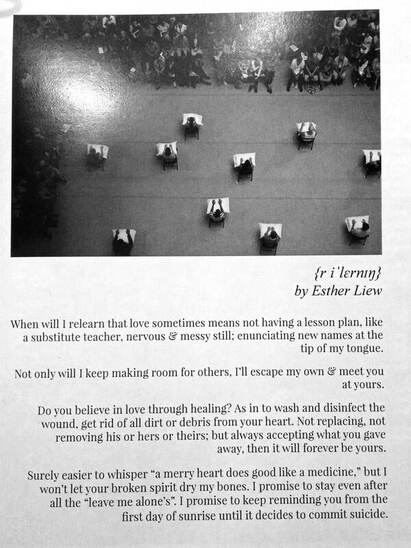
 RSS Feed
RSS Feed